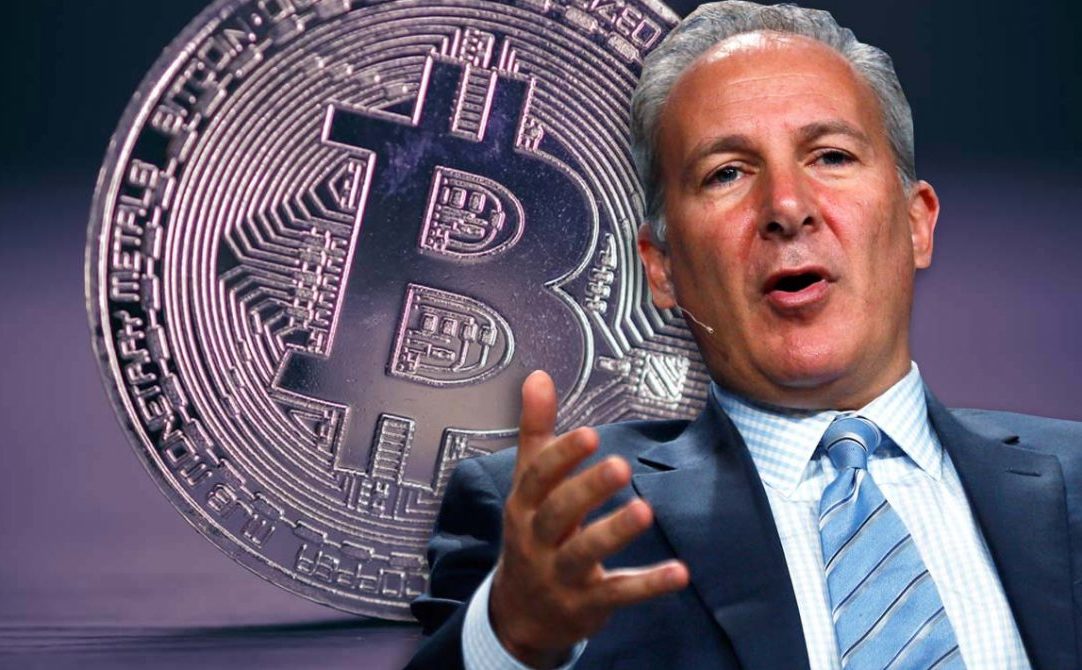Economist Peter Schiff Criticizes Bitcoin’s “Digital Gold” Claim as Market Pressures Mount
29.03.2025 22:00 2 min. read Alexander Stefanov
Peter Schiff, a well-known critic of Bitcoin and prominent economist, has once again targeted the leading cryptocurrency.
This time, he claimed that Bitcoin’s supposed status as “digital gold” is being increasingly questioned, particularly as inflation concerns and fears of stagflation grow. Schiff also expressed doubts about the effectiveness of the Strategic Bitcoin Reserve plans.
Schiff took to social media to argue that the narrative around Bitcoin as digital gold is unraveling. He pointed to the slowing growth of Bitcoin as a sign of its vulnerability, especially as inflation continues to rise.
The economist also highlighted the uncertainty surrounding tariffs, which he believes is further pressuring financial markets. In contrast, Schiff took the opportunity to highlight gold’s resilience, noting that while Bitcoin’s price continues to decline, gold is reaching new record highs.
In addition to his criticism of Bitcoin, Schiff previously referred to the Strategic Bitcoin Reserve as a “crypto scam,” accusing former President Trump of misleading Americans about Bitcoin and other crypto ventures. While Schiff admitted he understood the logic behind creating a Bitcoin Reserve, he firmly disagrees with the approach. He questioned why Bitcoin, touted as digital gold, was struggling while traditional gold remains in high demand.
Despite Schiff’s pessimism, some crypto analysts, like Ali Martinez, have suggested that Bitcoin could see a price rebound soon. Martinez pointed out that Bitcoin’s sell-side ratio has dropped significantly, a sign that historically precedes major price recoveries. Meanwhile, long-term Bitcoin holders continue to accumulate, with large transactions occurring despite the current market downturn. Notably, MicroStrategy, led by Michael Saylor, recently added nearly 7,000 BTC to its holdings, reinforcing institutional confidence in Bitcoin’s future.
-
1
UK Political Party Becomes First to Accept Bitcoin Donations
31.05.2025 10:00 2 min. read -
2
Bitcoin Treasury Frenzy Faces First Major Test as Market Cools
02.06.2025 18:00 2 min. read -
3
JPMorgan Quietly Opens the Door to Bitcoin-Backed Lending
05.06.2025 15:00 1 min. read -
4
Bitcoin Faces Key Test as Fed Uncertainty and Market Exhaustion Collide
05.06.2025 21:00 1 min. read -
5
Top Trending Cryptos of the Week: Bitcoin Leads, Memecoins and Newcomers Surge in Popularity
08.06.2025 11:00 2 min. read
Arthur Hayes Sees Bitcoin Surge Ahead as Fed Prepares to Print More Money
Arthur Hayes, co-founder of BitMEX, is betting that Bitcoin could be on the verge of a major rally—fueled not by halving cycles, but by central bank behavior.
Norwegian Mining Firm Adopts Bitcoin as Treasury Reserve
Oslo-based seabed-mining firm Green Minerals is shifting its treasury reserves from kroner and dollars into bitcoin, calling the move a hedge against inflation and geopolitical risk.
Crypto Funds Pull in $1.2B Despite Market Drop and Global Tensions
Global crypto funds just logged a tenth straight week of fresh capital, pulling in another $1.24 billion even as prices slid and geopolitics turned tense.
Anthony Pompliano Unveils Bitcoin Treasury Giant After Landmark Merger
Investor and entrepreneur Anthony Pompliano is rolling his private outfit, ProCap BTC LLC, into blank-check firm Columbus Circle Capital to form ProCap Financial, a new Nasdaq-listed business built around Bitcoin.
-
1
UK Political Party Becomes First to Accept Bitcoin Donations
31.05.2025 10:00 2 min. read -
2
Bitcoin Treasury Frenzy Faces First Major Test as Market Cools
02.06.2025 18:00 2 min. read -
3
JPMorgan Quietly Opens the Door to Bitcoin-Backed Lending
05.06.2025 15:00 1 min. read -
4
Bitcoin Faces Key Test as Fed Uncertainty and Market Exhaustion Collide
05.06.2025 21:00 1 min. read -
5
Top Trending Cryptos of the Week: Bitcoin Leads, Memecoins and Newcomers Surge in Popularity
08.06.2025 11:00 2 min. read


